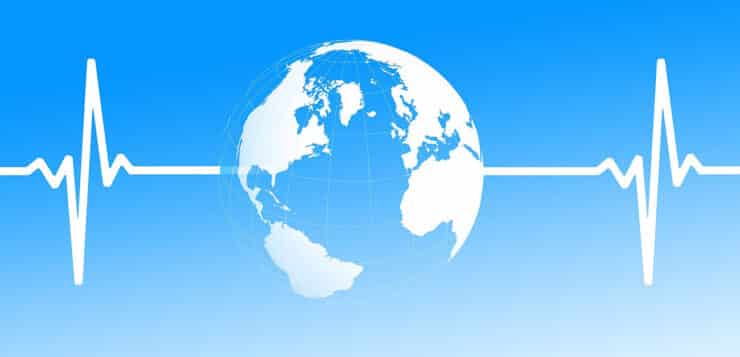
Nonetheless, healthcare students may only have a hazy understanding of what "helping people" entails in the context of healthcare. This is where medical volunteer programs can help by giving students a taste of what it's like to be a healthcare provider, giving them experience in the global health arena, and preparing them to serve their patients with skill, care, and compassion whenever and wherever they're needed.
A Worldwide Perspective
The World Health Organization (WHO) recently estimated that a healthcare labor shortage will leave more than 18 million positions unfilled globally by 2030. It is also estimated that the vast majority of those unfilled positions will be in developing countries, where the greatest need for quality healthcare exists.
This means that today's healthcare students will most likely be tomorrow's global health leaders, tasked with meeting an urgent need in some of the world's most remote locations.
To be sure, this is important and necessary work. If the COVID-19 pandemic has taught us anything, it is that when it comes to global health, we are all truly a part of one community, with each of us being a member of it.
This enormously interconnected human family.
Students in healthcare who choose to participate in medical volunteer programs will most likely find themselves serving abroad, caring for patients in some of the world's most impoverished and underserved populations.
And for aspiring practitioners who may have had little or no experience outside of their home communities and the large and sophisticated, if not always perfect, Canadian healthcare system, this opportunity can be invaluable.
Volunteering for medical programs abroad provides students with an extraordinary opportunity to learn firsthand what it is like to try to provide care when resources are scarce, sometimes woefully so. In the process, students gain a practical understanding of our global public health system, including not only its interdependence, fragility, and flaws, but also its strengths and weaknesses.
The World at Your Doorstep
But medical volunteering does not have to involve wide-ranging travel to the remotest corners of the globe. Students do not need to leave the continent to serve. Even within some of the world’s wealthiest and most advanced nations, profound disparities in access to consistent and high-quality healthcare.
In the United States, for example, health equity continues to be a persistent and pernicious problem. Despite having one of the largest, richest, and most sophisticated healthcare systems in human history, significant swaths of the US population remain excluded and underserved, which leads to a disparity in the safety of both patients and employees. Healthcare tech, however, is helping to mitigate these gaps.
Medical volunteer programs, though, often take students and healthcare tech into marginalized communities throughout the world. Working within communities of need that often can be found just beyond the students’ doorstep, whether that means stepping just beyond the national border and mere meters outside one’s own neighbourhood, introduces young volunteers to new cultures, new worlds, new experiences, and new perspectives.
And with that knowledge comes heightened sensitivity, greater cross-cultural awareness, and an increased capacity to couple caregiving with compassion, aid with understanding. Such are the essential aptitudes of the caregiver, whoever and wherever they may be and whomever and wherever they may serve.
The Takeaway
Healthcare students are being prepared to enter fields characterized both by great need and tremendous opportunity. They are embarking on a career path that is likely to lead both to financial prosperity and job security. But students who volunteer to participate in medical programs, both at home and abroad, will add something far more, and far greater, to their preparation. They will gain first-hand, real-world knowledge of the global health system and its impacts on local communities. They will experience the realities, the challenges, and the burdens of caregiving in underserved communities near and far And they will gain essential practical experience that will prove invaluable to employers, healthcare systems, patients, and families worldwide.



